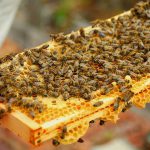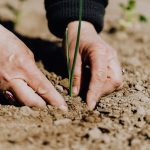
Press release
Karusa wind farm in South Africa’s Western Cape province achieved commercial operation giving the national grid access to an additional 147 MW of renewable energy.
As part of the Enel Green Power plan for Creating Shared Value (CSV) associated with the construction of the wind farm, actions have been proposed to support the area’s employability and empowering local enterprises.
Enel Green Power South Africa (EGP RSA) has connected to the electricity grid a 147 MW Karusa wind farm, which is located in a remote part of the Laingsburg Local Municipality in the Western Cape, and will be able to generate more than 500 GWh annually, potentially averting the emission of approximately 500,000 tons of CO2 into the atmosphere annually. Karusa features the Vestas V136-4.2MW wind turbines, the largest on the African continent to date.
Awarded to Enel Green Power in 2016 as part of round four of South Africa’s Renewable Energy Independent Power Producer Procurement Programme (REIPPPP), the wind farm is supported by a 20-year Power Purchase Agreement with South African energy utility provider, Eskom.
With Karusa wind farm operational, EGP RSA now has six wind farms up and running, including Nojoli (88 MW), Oyster Bay (148 MW), Nxuba (148 MW), Gibson Bay (111 MW) and Garob (145 MW), with its Soetwater (147 MW) wind farm also expected to achieve commercial operation during July 2022.
Collectively, the company has 10 operational wind and solar projects in South Africa. Once all current projects are in operation, the business will have an overall installed capacity of 1.2GW.
Manuele Battisti, Country Manager of EGP RSA, says construction of the Karusa facility commenced in 2019 and amounts to a 200-million-euro investment in South Africa.
“The COVID-19 hard lockdown and accompanying restrictions caused various delays and supply challenges for the project as well as limiting international travels. Enel Green Power overcame these strategic problems by using South African resources and harnessing technological solutions that allowed for remote interaction with colleagues in other countries,” he adds.
EGP RSA is committed to supporting South Africa to solve its energy crises through renewable energy solutions. It also employs local staff and hires local contractors in the construction process, with the aim of promoting meaningful socio-economic and enterprise development. At the peak of the construction process of Karusa and Soetwater, the business had 1,160 employees on site.
As part of its Creating Shared Value initiative, EGP RSA has assisted underserved communities in close proximity to the wind farm. One initiative involved the supply of 15 interactive smartboards and 15 laptops to the Acacia Primary School in Laingsburg as part of an educational support programme.
During the nationwide lockdown, which began in March 2020, EGP donated food relief parcels to approximately 200 families in vulnerable communities, in collaboration with the Laingsburg Local Municipality.
EGP RSA is currently looking to empowering local SMMEs through its Enterprise Development Support programme. This could include support in the form of funding, income generating assets (equipment), skills development and market linkages, amongst others.
Other Socio-Economic Development projects focusing on education, healthcare, social welfare and skills development will be implemented now that the project is operational.
In addition, a community needs assessment will be conducted to identify the most pressing community needs and pinpoint any skills gaps within the beneficiary communities. The investment in these communities is estimated to be 800-thousand-euro per annum.
Battisti says while the employees at Karusa worked under extraordinary circumstances, they concluded their work with zero lost-time incidents: “Completing the project despite challenging circumstances is testimony to their hard work and resilience”, he concluded.
Relevant pages on Agribook include “Renewable and alternative energy” and “Energy“.







